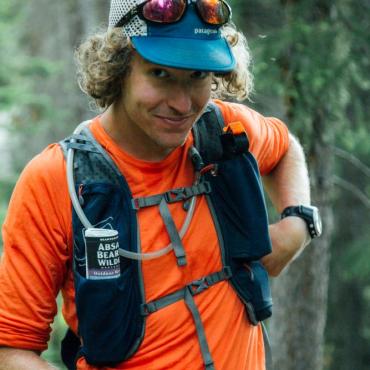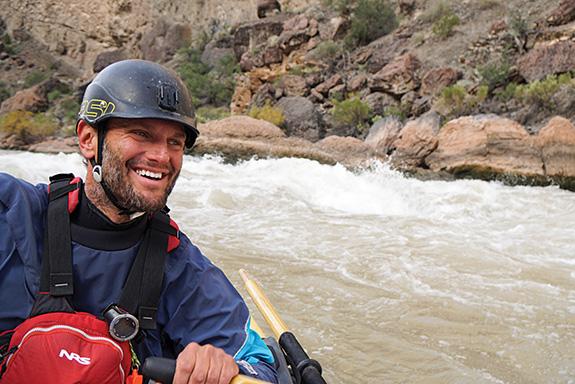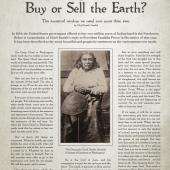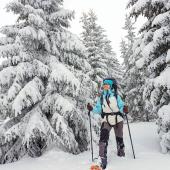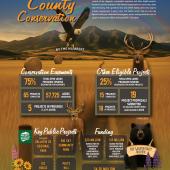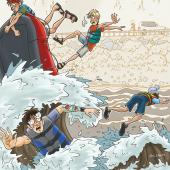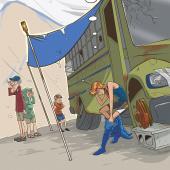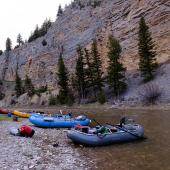Keep It Relevant
As part one of a new four-part series, Outside Bozeman caught up with American Rivers’ Michael Fiebig for a conversation exploring the intersection of conservation and recreation. When not working as the Northern Rockies conservation director, advocating for the region’s free-flowing rivers, he can be found paddling the wild waterways of Bozeman’s back yard, using human power to connect the far corners of the ecosystem. —Anthony Pavkovich
O/B: Describe your role in the conservation community.
MF: Well, my “day job” is working to keep wild rivers wild in Montana, Idaho, and Wyoming. I also volunteer as a longtime board member of Montana Backcountry Alliance, and I’m past board president (and a current board member) of Winter Wildlands Alliance.
O/B: At what point did you decide to pursue a career in conservation?
MF: During the past 20 years I slowly made the move from guiding, to teaching outdoor recreation, to adding seasonal conservation field work, going to graduate school, and finally working as a full-time conservationist. It was a slow progression. There really wasn’t any single decision point—I would say that I found myself moving deeper and deeper into conservation as I followed my passions, interests, and desire to be a part of the solution.
O/B: How did outdoor recreation influence your career decision?
MF: Greatly. I came to conservation through the outdoor recreation and education worlds. In particular, I took a chance on a multi-day interview trip to be a summer raft guide in 1998 while I was in school at CU Boulder. It dramatically changed the course of my life. I ended up leaving school, guiding rivers and traveling year-round, and slowly making my way into the conservation world as I saw places that I loved starting to disappear. Rivers were the defining thread in this journey.
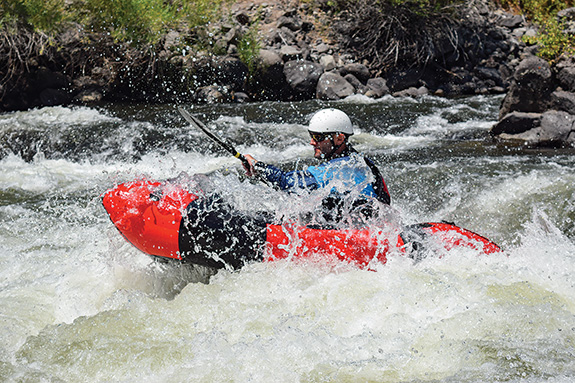
O/B: What is one of your distinct, early outdoor-recreation memories?
MF: I grew up in a large hunting family. My favorite outdoor-recreation memories all seem to revolve around my extended family and my grandparent’s cabin in Northern Michigan—hunting, fishing, canoeing, swimming, climbing trees, mending fences, chopping wood, building sheds, and such. I think that’s why I like outdoor-recreation activities that require hard work—hard work is really fun when you’re doing it with the right group of people.
O/B: What is your proudest recreation achievement?
MF: That would probably be our recent five-month, 1,800-mile source-to-sea expedition on the Green and Colorado rivers that my wife and I completed in fall 2018 and winter 2018-19. We travelled the river under human power from the high Wind River Mountains in Wyoming to the Gulf of California in Sonora, Mexico. For most of the trip we rowed a purpose-built whitewater dory—including all of the reservoirs—and packrafted at the start and the end due to low water. Along the way we recorded interviews with a diverse group of people about their connection to the river and to one another. We’re still working on editing it all, but you can follow our progress at One River Expedition on social media or at One River Many Voices on the web.
O/B: Where do you see conservation and recreation intersecting?
MF: I’m sure that I’m biased because of my journey, but I think that a lot of us in the conservation world got here through recreating outdoors with curiosity and empathy. I believe that the conservation-recreation intersection is where outdoor experience and empathy meet, motivating people to act. Environmental impacts are really obvious when you see them with your own eyes. So are the values of intact places. Much of what we do in society when we’re not outdoors is externalized—removed from our view. Climate change, overuse, development, pollution. What is at stake is in plain sight when we recreate in the outdoors, as long as we are paying attention.
O/B: How do you propose balancing recreation pressure with conservation goals in the Northern Rockies?
MF: I honestly don’t have a definitive answer, but I’m committed to working on it. I think that there is a lot of room on the landscape for ethical, well-managed recreation that incorporates the best available science. Conversely, there is almost no additional room for high-impact or careless users anymore. We’re loving many of our wild places to death, right? That said, in a democracy we need to maintain the relevance of those places to people or we risk a backlash. For better or worse, many people define their connection to landscapes through outdoor recreation. Too often we find ourselves in polarized discussions that seem to default to “close it” or “open it,” when really, we need to find an intelligent way to maintain ecological integrity while allowing uses that make sense in space, time, and intensity. I’d like to see us have more in-depth discussions, more shared meals, more empathy for wildlife and one another, and more time outdoors together to figure it out.
O/B: Where do you see the greatest challenges between conservation and recreation?
MF: Conservation and outdoor recreation are natural partners. I think that we’ve allowed polarizing industries and ideologies to drive a wedge between them in order to make money or consolidate power. This has been incredibly damaging. Humans are very attuned to avoiding perceived losses, much more so than working toward perceived gains. I think that this “politics of loss” has been used effectively to polarize Americans on many levels. We can fight it by refusing to participate in that narrative. We will still disagree with one another, but let’s not cast the other’s intentions as evil or wrong. The forces that work against conservation and outdoor recreation love it when we fight amongst ourselves.
O/B: What is your most gratifying conservation accomplishment?
MF: Helping to protect East Rosebud Creek as Montana’s first new Wild and Scenic river in over 40 years, getting the Wild and Scenic Rivers Act and the need for wild river protection more on people’s radar, and working with the Forest Service to protect over 100 streams, 1,045 stream miles, and more than 300,000 acres of streamside lands during Forest Plan Revision processes.
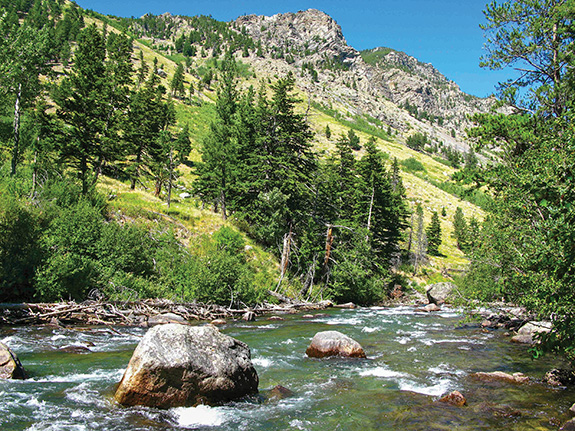
O/B: If you could make one request of the Bozeman recreation community in regard to your conservation goals, what would it be?
MF: I would ask people to try to put rivers, landscapes, wildlife, and traditional cultures first by advocating for conservation, learning how to travel with lower impacts, and spreading the word to other recreationists. Get more involved. Broaden the conversation. We have a duty to protect the lands and waters that not only give us a place to recreate, but also provide us with clean water, clean air, and homes for wildlife. If you want a favorite place to stay wild, clean, or open to wildlife, then you have to do something about it, because there is no guarantee otherwise. Protect what you love. And then do it again. That’s the way that our system works best.

